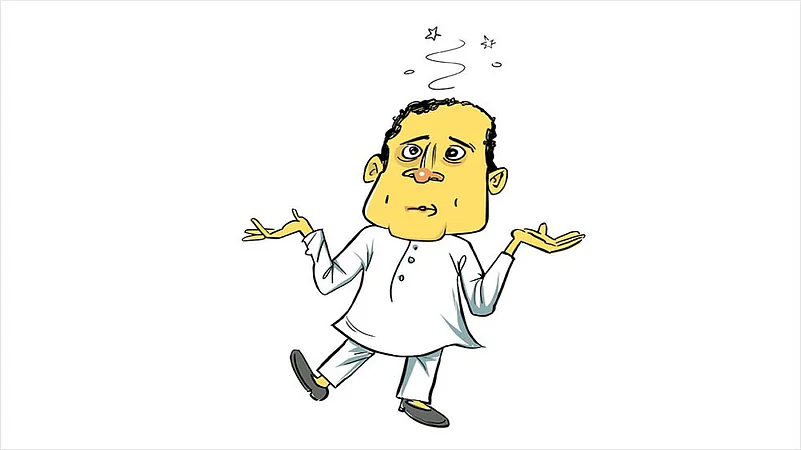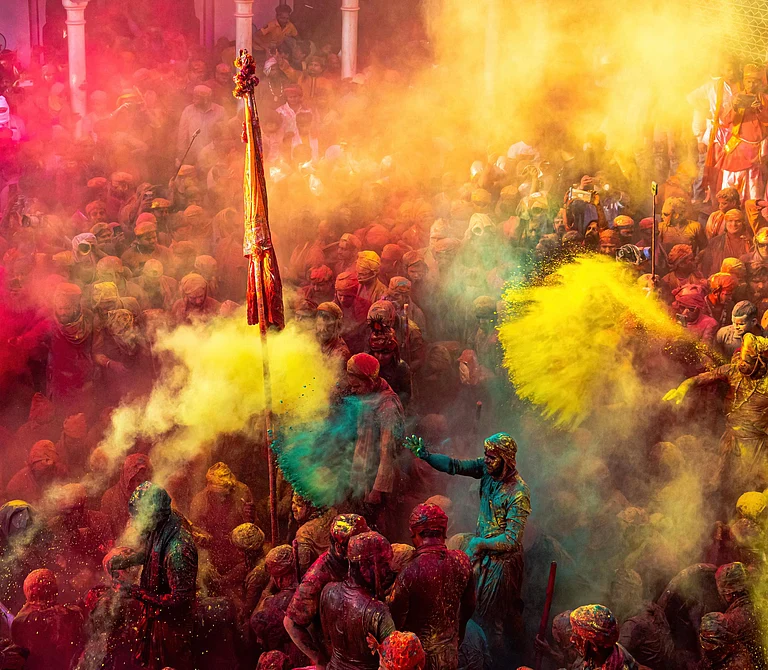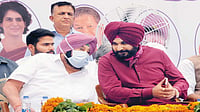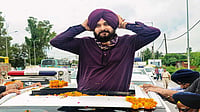On May 1, during an interview with a news agency, Congress leader Rahul Gandhi was asked if he was prepared to lead his party once again. It was a question that had come Rahul’s way countless times since he quit his party’s presidency after the 2019 Lok Sabha debacle, but had always met with a non-committal response. This time around, a day before results were due for the assembly polls in Kerala, Assam, West Bengal, Tamil Nadu and Pondicherry, the reply was different—not definitive, but not entirely in the negative either. “I will do whatever the party wants me to do,” Rahul replied.
Several Congress leaders—those loyal to Rahul and others wary of his leadership—believe the response was based on inputs from his lieutenants who predicted a clear win for the party in Assam and a substantial improvement in the party’s tally in Kerala. Rahul had practically led the Congress campaign in Kerala, the state that elected him to the Lok Sabha in 2019. In Assam too, Rahul and party general secretary Priyanka Gandhi Vadra had campaigned extensively. A prospective poll victory could have propelled Rahul back to his party’s top post, without critics taunting him for his near-unbroken record of leading his party to electoral disasters.
ALSO READ: Positive Result, Negative Time
The change in Rahul’s tune wasn’t entirely unexpected. The party had pushed Rahul to the vanguard of the Kerala and Assam campaigns in the hope that a victory would snuff out machinations by a section of party leaders who are averse to a Rahul-led Congress. Elections for a full-term Congress president are scheduled for June. The Nehru-Gandhi loyalists believed that a triumph, particularly against the BJP in Assam, would diminish chances of a challenge to Rahul’s candidature for the party presidency.
But then, electoral astrology often proves hazardous for ambitious future planning. Less than 24 hours after the interview, his party was routed at the hustings again. The Congress alliance with M.K. Stalin’s DMK emerged victorious in Tamil Nadu, but the other four poll-bound assemblies rejected the party. In Bengal, though the party was never in contention for power, the Congress has been virtually wiped out—the third time in two years that the Congress scored a duck in an assembly election since the routs in Andhra Pradesh (2019) and Delhi (2020). In Kerala, despite Rahul’s strident campaign and popular electioneering antics, the party bagged only 21 seats—one less than its 2016 tally. In Assam, the Congress added to its 2016 tally of 26 seats by just an additional three seats.
ALSO READ: Broken Arrow
The shock within the Congress at its defeats has been palpable ever since. The party’s media cell chief and Rahul confidant, Randeep Singh Surjewala, addressed the media with that all too familiar refrain, yet again: “We accept the verdict with all humility and responsibility…the results, particularly in Assam and Kerala, are contrary to our expectations. We will introspect and make amends.”

Within the faction of Congress leaders who have persistently been demanding an effective leadership and a massive organisational overhaul to pull the party out of its morass, the results have brought another dose of despair. These leaders, though depleted in their numerical strength from the original grouping of G-23, haven’t publicly commented on the poll rout. One of the G-23 leaders tells Outlook, “If we speak out now, the coterie around Sonia and Rahul will say we are being insensitive to the ongoing Covid crisis, that our timing is wrong. We appreciate the leadership’s effort to alleviate the Covid tragedy, but why can’t we also treat the virus of incompetence and listlessness that is killing our party?”
ALSO READ: Game Over, Or Halftime?
With the Congress president’s election a month away, Nehru-Gandhi family loyalists believe the latest electoral setbacks will create hurdles for Rahul and may encourage dissenters to put up a rival candidate. There are already some murmurs of using the deepening Covid crisis as an excuse to delay the party’s presidential polls again. A majority of the party cadre, say sources, still backs Rahul for Congress president. They point at the Wayanad MP’s prophetic comments on the havoc unleashed across India due to the Centre’s mismanagement of the Covid pandemic and claim that “Rahul is the only opposition leader, other than Mamata Banerjee, who doesn’t shy away from launching a direct attack against Narendra Modi and Amit Shah”.
ALSO READ: All These Small, Left-Leaning Flowers
However, party leaders also agree that Rahul’s “branding as an incompetent leader, a political tourist” is the biggest obstacle to the party’s revival. “No matter what he does, the voters don’t seem to trust his ability to take on Modi and the BJP. These elections too have proved that though voters want an alternative to the BJP, they would rather trust a regional leader than Rahul or a Congress led by him,” says a senior Congress functionary.
ALSO READ: The Other Pinarayi
Mamata Banerjee’s stupendous victory against all odds in Bengal has now seemingly given her a pan-India appeal among voters who want a credible street-fighter to take on Modi. The Bengal win has, in some ways, brought her to the same stature that Sharad Pawar enjoys since he outmanoeuvered the BJP in Maharashtra. These developments don’t bode well for the Congress and the Gandhis. “There has already been a quiet campaign by some opposition parties as well as our own leaders to replace the Gandhis as the face of the opposition. People like (Shiv Sena MP) Sanjay Raut have rooted for Pawar. Now, you can add Mamata to the list of opposition leaders who can replace Sonia as the face of the UPA. If this gains momentum, the Congress may lose its centrality to the anti-BJP bloc nationally,” a Congress veteran says.
ALSO READ: Captain @99
The Congress’s inability to win elections in bipolar contests against the BJP hasn’t been lost on its alliance partners. In multi-party states, allying with the Congress is often a liability for regional players that take on the BJP, as was proven in Bihar. That the Congress is losing its capacity to be in the driver’s seat of the anti-BJP bandwagon hasn’t been lost on other UPA constituents who repeatedly urge the Grand Old Party to shed its Big Brother attitude. Surjewala disagrees. “While I respect our regional partners and accept that they have performed better than us in some state polls, I strongly believe that the Congress is the only national alternative to the BJP,” he says, adding that performance of regional parties in assembly elections is not always replicated in the Lok Sabha polls.
ALSO READ: Serving Them A Full-Bodied Cuppa
Its leadership challenge aside, the Congress has also consistently failed to wrest its swiftly eroding grassroots footprint. Discount its ruling alliances and the Congress holds power in just three states—Punjab, Chhattisgarh and Rajasthan. In the past seven years, it has also lost old bastions of Delhi and the undivided Andhra to regional parties, while in Bihar, Bengal and Odisha, its limited base has also crumbled. The Northeast, once a Congress citadel, is now a saffron fortress.
ALSO READ: Two In The Muddle
In a year from now, crucial states like UP and Punjab are due for polls, as are Uttarakhand, Goa and Manipur. Barring Punjab, where the Congress is presently in power and has a formidable leader in chief minister Amarinder Singh, the party faces an uphill electoral battle in each of these states. In UP, Priyanka Gandhi has been the party’s in-charge for over two years. Yet, there is still no clear sign of a Congress revival and the party has no credible face to challenge Yogi Adityanath despite the state’s prominent regional parties—Akhilesh Yadav’s SP and Mayawati’s BSP—leaving the opposition space wide open to be appropriated.
ALSO READ: Prince Who Finally Became King
The human tragedy jointly triggered by the Covid pandemic and the BJP-led Centre’s bumbling response to it, Congress leaders believe, have finally exposed the Modi government to an unprecedented electoral vulnerability. Yet, the Congress appears no closer today to outwitting the BJP at the polls than it was ever since the first Modi wave of 2014.
ALSO READ: The Dravidian Wall
***
A Failed Experiment
Persistently taunted by its rivals and insiders alike for the agonising wait its young and non-dynastic grassroots workers must endure before getting a shot at electoral debuts, the Congress had attempted a course correction in the recent assembly polls. On the insistence of Congress leader Rahul Gandhi, the party had made a concerted effort to make a “generational shift” while fielding nominees. The strategy was also based on an internal assessment by Rahul’s aides that the electorate, particularly in Kerala and Assam, wanted fresh young faces as their representatives. In Kerala, the Congress bet on over a dozen new candidates who had been handpicked from its frontal organisations like the Youth Congress and the All India Professional Congress; Assam too saw six such candidates. However, as poll results were announced on May 2, almost the entire youth brigade collapsed. The notable exceptions were Shafi Parambil in Kerala’s Palakkad, who trounced the BJP’s CM candidate, ‘Metro Man’ E. Sreedharan, by 3,859 votes, Tamil Nadu Youth Congress chief JMH Aassan Maulaana, who won from Velachery, and former Kerala Youth Congress secretary T.J. Saneesh Kumar, who tasted victory in Kerala’s Chalakkudy constituency.
***
Young And The Winless



























